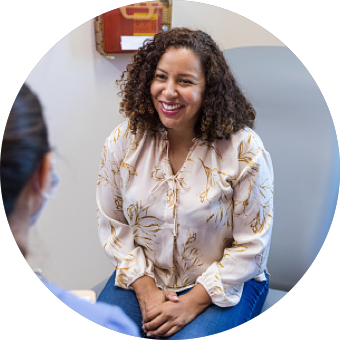Associates in Digestive Health

Save Time and Money on Your Colonoscopy
See if you qualify to skip the pre-procedure office visit.

Experiencing Rectal Bleeding, Itching, or Pain?
See if you qualify for hemorrhoid banding.
Your Partners in Innovative Digestive Care
We are here to provide affordable, quality digestive care as a part of your life, so you can enjoy more of it.
Patient Forms & Resources
Prior to your appointment, you will receive a link to complete your patient paperwork.
No Show / Cancellation Policy
If you are unable to keep your appointment, please reschedule at least 48 hours in advance. A missed appointment may result in a $25 fee.
Si no puede asistir a su cita, reprograme con al menos 48 horas de anticipación. Una cita perdida puede resultar en una cuota de $25


Are you trying to schedule a colonoscopy?
If so, we encourage you to complete a short questionnaire to see if you qualify to skip the pre-procedure office visit.
Or Continue to Schedule AppointmentInsurance Information
Our practice accepts most insurance plans:
- Aetna
- Blue Cross Blue Shield
- Cigna
- Humana
- Medicare
- and more!
Please check with your insurance carrier to verify coverage.
Colonoscopy Prep Instructions
Proper bowel cleansing preparation (prep) is critical for a successful colonoscopy exam. While there are many different preps, your gastroenterologist has chosen the best bowel cleansing prep based on your medical history. Click below to access Your Patient Advisor℠ for ALL prep needs. Please contact Your Patient Advisor at 1.800.349.0285 for login credentials or clarification on which prep you are supposed to follow.
If you purchased your bowel cleansing prep through Your Patient Advisor, visit Your Patient Advisor site or select the prep instructions indicated by your gastroenterologist.
English
Standard Same Day
Standard Split
Spanish
Standard Same Day
Standard Split
If you chose to purchase your bowel cleansing preps at a local store/pharmacy, select the prep instructions indicated by your gastroenterologist.
English
Standard Same Day
Standard Split
Spanish
Standard Same Day
Standard Split
If your gastroenterologist gave you a prescription or electronically sent a prescription to your pharmacy, select the prep instructions prescribed by your gastroenterologist.





![Weissblatt_P Web 2022[41]](https://www.uniteddigestive.com/wp-content/uploads/2022/10/Weissblatt_P-Web-202241-242x242.jpg)



